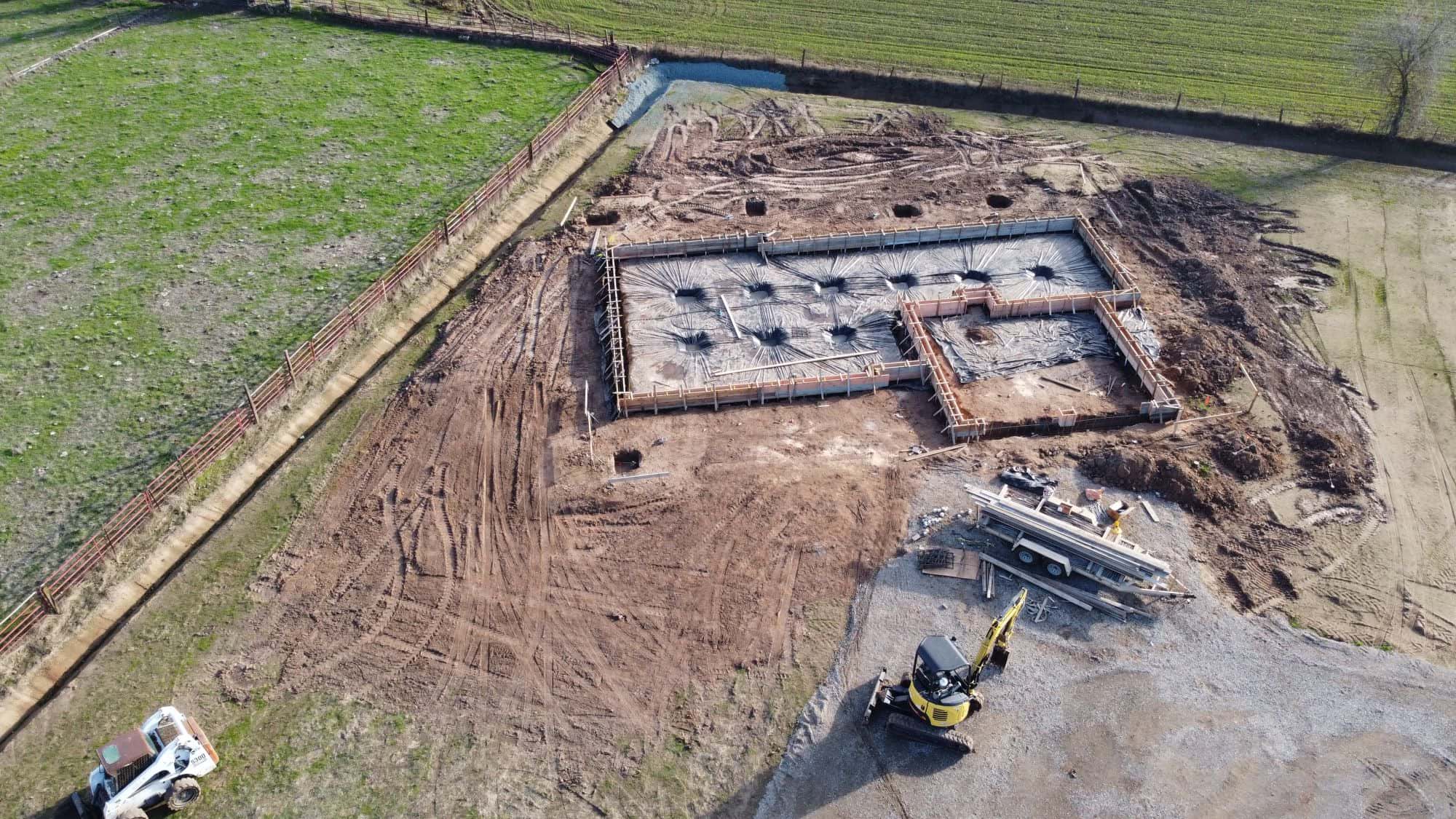Facebook Groups: A Guide on When to Use Them and When to Seek Alternatives
For a fledgling community, Facebook Groups are often seen as the leading standard. They’re easy to access, come with a built-in audience, and require little to no knowledge to get started. But are Facebook Groups the only option? When might you need something a bit more powerful?
In this guide, we’re going to take a look at:
- When Facebook Groups Work for Your Community
- Signs Your Company Needs a More Robust Platform
- Options on Where to Build Your Community
- How to Move an Existing Facebook Group
Let’s go!
When Facebook Groups Work for Your Community

Facebook Groups have a number of advantages for brand-new communities. These built-in mini-communities tend to be best for:
- Small communities: Communities that fit the two pizza rule, or 8 to 20 people (okay two pizzas don’t feed 20 people, but four theoretically could) can work really well on a platform like Facebook Groups. The pace of posting and commenting is reasonable enough to keep up with, and it’s easy for new members to feel right at home with little welcome.
- Older content is not relevant: In some community settings, the discussions that matter are the ones happening now, not those that occurred three years ago. Facebook Groups are a good starting place for communities whose older content is not important or relevant.
- Discussions are transactional: We all know Facebook is not the place to have an important, potentially contentious discussion -- even within the confines of a private group. Instead, transactional kinds of communication (keeping members aware of events, posting announcements, or sharing interesting photos/links/memes) tend to do best on this platform.
- Audience is 100% on Facebook: Facebook’s network effect is one of its most powerful features. By design, Facebook Groups work if your community’s audience is based 100% on the platform because Facebook leverages its own network effect to increase your community’s reach.
- Data portability and ownership is not a concern: It’s no secret that Facebook collects a lot of data about each of its users, but what you might not know is that after recent breaches and scandals, it is now much more difficult to get data out of Facebook. If data pertains to other people, obtaining the data is next to impossible -- even for your community. If retaining access to data is of no concern to you over the long-term, running a community on Facebook also can make sense.
Signs Your Community Needs a More Robust Platform
You might be running a growing Facebook community and hitting limitations on the platform, or maybe you’ve shortlisted Facebook Groups and are interested in learning more about alternative options. There are a few signs to keep in mind that would indicate your new or growing community may need a different platform.
Keep the Kind of Community in Mind
There are a number of different kinds of communities you can run. These range from customer support communities all the way to brand/influencer/creator groups. Each one has its own set of needs from the community platform hosting its members. For example, if your community model requires finding and participating in older conversations, such as with an effective customer support community, your members are going to have a difficult time with this on Facebook as older posts are hard to find.
High Volume Engagement
Is the community expected to have or already experiencing a high volume of engagement? If your group has a large number of new topics, replies, and discussions going on over a given day, it’s likely you’ll need a dedicated discussion platform. While Facebook Groups are great for getting a conversation started, some go unnoticed while a small few get the majority of attention. As your community grows, this favoring of some discussions over others can leave some members feeling left out and can yield a bent toward discussing controversial topics since these conversations tend to bring higher levels of engagement.
Strong Need for Moderation
Facebook Groups have some moderation tools, but if your community is showing a need to have better options to keep discussions on point and on track, a platform with dedicated community-led moderation tools is a much better option. When your community members can flag discussions or replies suspected to be in violation of community standards and put them in front of moderators to see and handle these potentially problematic conversations, your group can stay healthy and on mission much more easily.
Leaving Members Out
In this day and age, not everyone wants to be on Facebook. To keep your community on a closed platform means you’re leaving people who want to be a part of it out. Using a dedicated platform, while less convenient for those who use Facebook, can help you reach entirely different groups of people. Also, don’t forget that conversations in Facebook Groups are not indexed by search engines, meaning people looking for answers or topical discussions on Google will not be able to find them through an internet search. Having conversations indexed by search engines can dramatically improve your community’s discoverability and growth.
Access to and Ownership of Data
As previously discussed, it is now nearly impossible to get any data related to a community on Facebook out. You effectively do not own your community’s data on Facebook. If retaining control of this data is important to you or your company or if keeping your community members’ information away from third-party advertisers or data collectors is a priority, then selecting a platform that prioritizes data ownership is of utmost importance.
Options on Where to Build Your Community

With all of that in mind, where would you build a community outside of Facebook? There are many options, and most fit into three main categories.
Chat
Platforms like Slack, Discord, and Telegram tend to be some of the first tools away from Facebook that community managers reach for. They’re great for fast-paced, synchronous communities who solely want to focus on activities happening right now. These platforms are largely closed, so they suffer some of the same deficiencies Facebook Groups encounter in regard to portability, openness, data ownership, and search indexing.
Newsletters
Not typically seen as a traditional community, but newsletters are often used as a way to send information to a group of any size. If your community requires no user-to-user interaction and is primarily focused on a way to keep its members up to date, this avenue may be a great choice. Newsletters are also closed, meaning their contents are only sent to a member’s email inbox, so if public discussions are a priority, this may not be the best choice.
Dedicated Community Platform
A dedicated community platform is designed for hosting discussions in a way that fits various community models, styles, and sizes. These platforms can be configured to be private or public, and often allow for some level of data ownership. Platforms like Discourse grant access to a full data backup of your community (no questions asked), and offer nearly limitless options for configuration, customization, and integration.
How to Move an Existing Facebook Group

If you’re already on Facebook and are looking to move your community to a different platform, I have some difficult news to share -- a direct migration to another platform is not possible as of the writing of this article. As mentioned, Facebook has locked down their data APIs so that accessing and moving data related to other people is nearly impossible to do.
That means if you’re looking to move to a dedicated community platform, for example, it fully becomes an exercise in community management. Often what community managers do is run two communities in parallel. These managers set expectations that the Facebook Group will close after a certain date, that no conversations will migrate over, and going forward further conversations should start on the new platform. Community members then have the opportunity to wrap up conversations on the old platform while getting familiar with the new one.
When the date comes to fully shut down the Facebook Group, the newer platform already has content old and new users alike can engage with, and there’s momentum to encourage all users to join. All of that said, some members may not make the jump. While that can be unfortunate, investing in the future of your community is important as well.
To Group or Not to Group
Facebook is an easy way to reach your audience, but for some communities it doesn’t scale well. Considering its strengths and weaknesses, the difficulty of moving data away from Facebook Groups, and alternative options of where you can build your community, you are now more equipped to determine the best long-term course of action for your project. If you have questions about anything discussed in this article, let us know in the linked discussion below.
